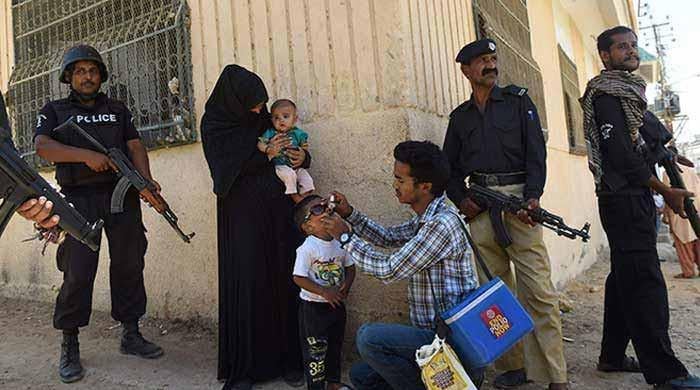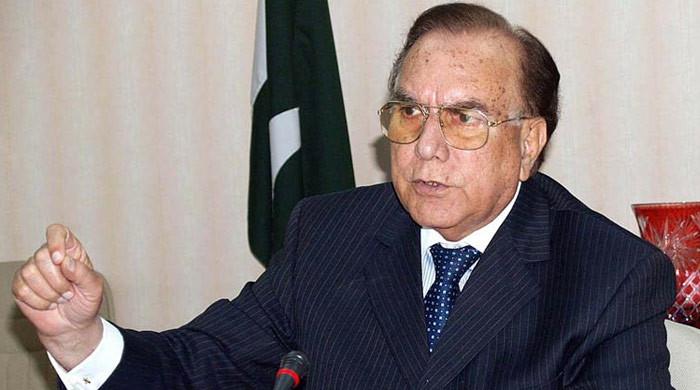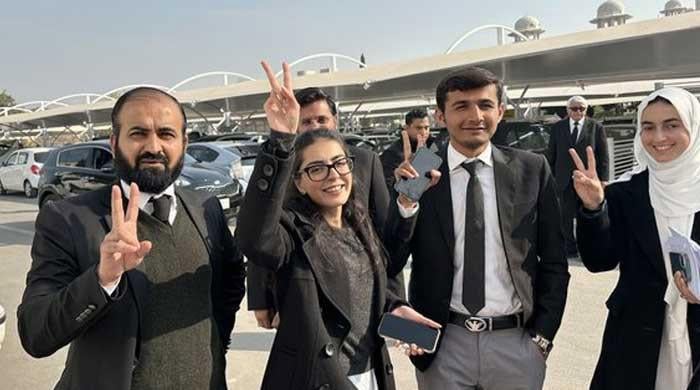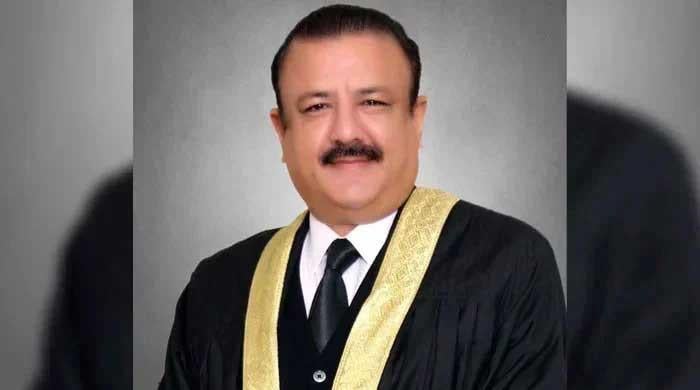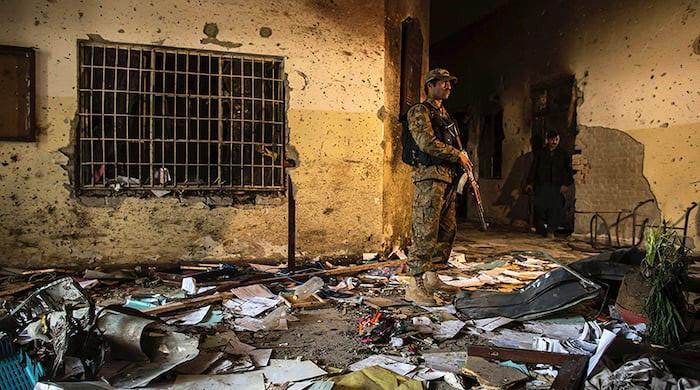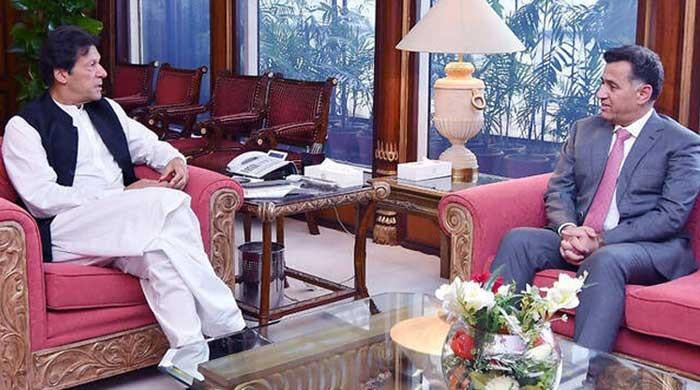MQM’s inner turmoil may encourage MMA’s revival in Karachi
In the 2002 General Elections, MMA bagged five of Karachi's 20 NA seats and six of 42 Sindh Assembly seats from the city
November 16, 2017
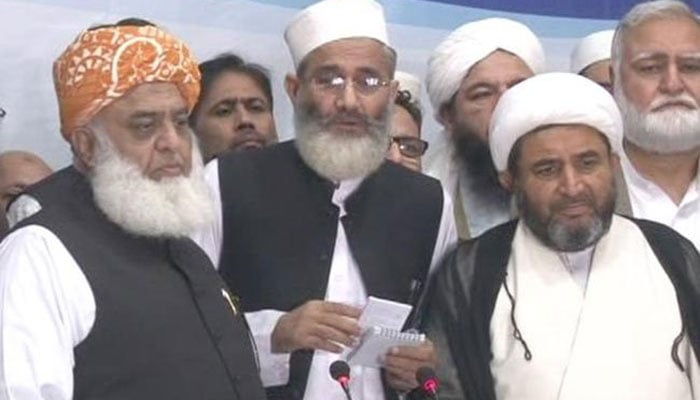
KARACHI: To capitalise on the inner turmoil of the Muttahida Qaumi Movement (MQM) and woo its Urdu-speaking voters in Karachi, religious parties, especially the Jamaat-e-Islami (JI), have been trying to revive their electoral alliance.
The Muttahida Majlis-e-Amal (MMA) was an alliance of six religio-political parties: the JI, the Jamiat Ulema-e-Islam-Fazl (JUI-F), the Jamiat Ulema-e-Pakistan (JUP), the Markazi Jamiat Ahle Hadith (MJAH), the Tehreek-e-Islami Pakistan (TIP) and the Jamiat Ulema-e-Islam-Sami (JUI-S).
The MMA was formed for the 2002 General Elections in which it managed to win five of the 20 National Assembly seats from Karachi and six of the 42 Sindh Assembly seats from the city. The alliance ruled Khyber Pakhtunkhwa (then NWFP) from 2002 to 2007, but after developing internal rifts over contesting the 2008 polls, the MMA became dormant.
In the 2008 and 2013 general elections all the religious parties, except the JI that had boycotted the 2008 polls, contested separately in the metropolis and could not win back the seats they had secured in the 2002 polls.
Even in the local government elections held in December 2015, the religious parties contested separately, and the JI, one of the MMA’s key components, preferred to form an alliance with the Pakistan Tehreek-e-Insaf. However, the religious parties could not perform remarkably.
Now, after a decade, the JI has been making efforts to restore the MMA as part of its preparation for next year's polls. Last week, the leaders of the six parties had announced contesting the polls again under the old symbol – book – and manifesto.
JI Sindh chief Dr Merajul Huda told The News that the component parties of the MMA had agreed to revive the alliance, stressing that they would perform well in the next polls in the entire country, particularly in Karachi.
“Traditionally, Karachi’s residents supported religious parties, but an ethnic party [a possible reference to the MQM] used violence and rigging to steal the city’s mandate. In all the episodes, some hidden powers, including international forces, played a role in imposing the group on the metropolis for their vested interests.”
Huda is hopeful that the MMA would win more seats in the next general elections in the city than they had in the 2002 polls.
The MMA candidates who won NA seats from Karachi included Qari Gul Rehman (JUI-S) on NA-239 (Keamari and Baldia), Muhammad Laiq Khan (JI) on NA-241 (SITE and Orangi), Abdul Sattar Afghani (JI) on NA-250 (DHA, Clifton and Saddar), Muhammad Hussain Mehanti (JI) on NA-252 (PECHS, Old Sabzi Mandi and PIB Colony) and Asadullah Bhutto (JI) on NA-253 (Gulshan-e-Iqbal). Sahibzada Abul Khair Mohammad Zubair (JUP) won an NA seat from Hyderabad.
The MMA candidates who won provincial assembly seats from Karachi included Maulana Umer Sadiq (JUI-F) on PS-90 (Baldia), Hafiz Muhammad Naeem (JUI-F) on PS-91 (Baldia), Hameedullah Advocate (JI) on PS-93 (SITE), Nasrullah Shaji (JI) on PS-116 (Old Sabzi Mandi and PECHS), Muhammad Younas Barai (JI) on PS-126 (Gulshan-e-Iqbal) and Maulana Ahsanullah Hazarvi (JUI-F) on PS-128 (Landhi Industrial Area). Abdul Rehman Rajput won PS-45 from Hyderabad.
A different situation
Analysts believe that today’s situation is different from that of 2002. They say the MMA’s victory at the national level was mainly because of the region’s geo-political significance following the US invasion of Afghanistan.
“Exploiting the attack on Afghanistan and promising the enforcement of shariah, the MMA managed to secure votes mainly in Pakhtun-populated regions such as Khyber Pakhtunkhwa, FATA and Pashtun areas of Balochistan,” Khalid Mehmood, a Karachi-based reporter covering religious parties, told The News.
In Karachi as well, the MMA won most of the constituencies that comprised Pashtun-dominated areas, said Mehmood. “Moreover, four of the six MPAs of the MMA were Pashtun.”
Analysts believe that the JI, which is still reeling from its poor performance in the 2013 General Elections and the 2015 LG polls, is more interested in the MMA’s revival, as they are trying to make inroads into the Urdu-speaking vote bank by capitalising on the vacuum created because of the MQM becoming embroiled in problems.
We shall win: MQM-P
MQM-Pakistan spokesman Aminul Haque told The News that after the emergence of the MQM, Karachi’s residents had rejected reactionary parties, including the JI, as they failed to protect the rights of the city’s residents, especially the Urdu-speaking community.
“This is why the JI has constantly been facing the worst defeats in the past three decades,” Haque said, adding that after the MQM-P distanced itself from the MQM founder last year over his anti-state speech and after the party’s successful public gathering this November 5, the MQM-P is confident it would win the 2018 polls.
Pashtun vote bank
A number of religious leaders claim that the chances of the MMA’s success are likely in the city’s Pashtun-populated areas, for which the JI and the JUI-F will field their candidates.
“After the emergence of the Tehreek Labbaik Ya Rasool Allah and the Majlis-e-Wahdat-e-Muslimeen, the Barelvi JUP and the Shia TIP have been weakened, and their role in the MMA would only be symbolic,” said a religious leader.
“The status of the JUI-S and the MJAH is similar in the alliance.”
Originally published in The News




